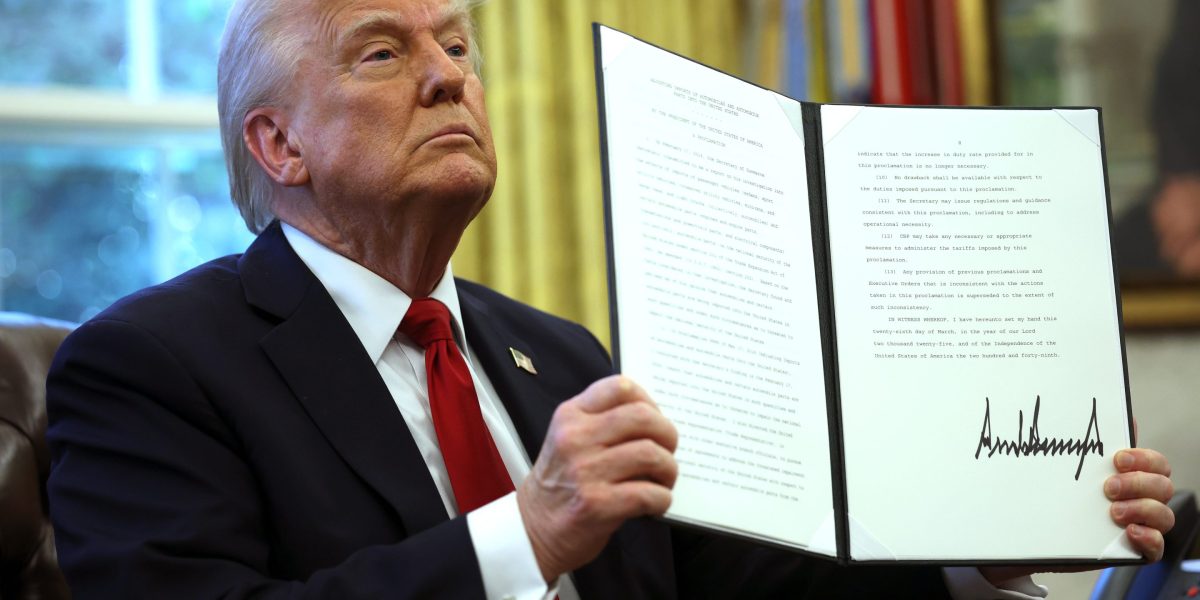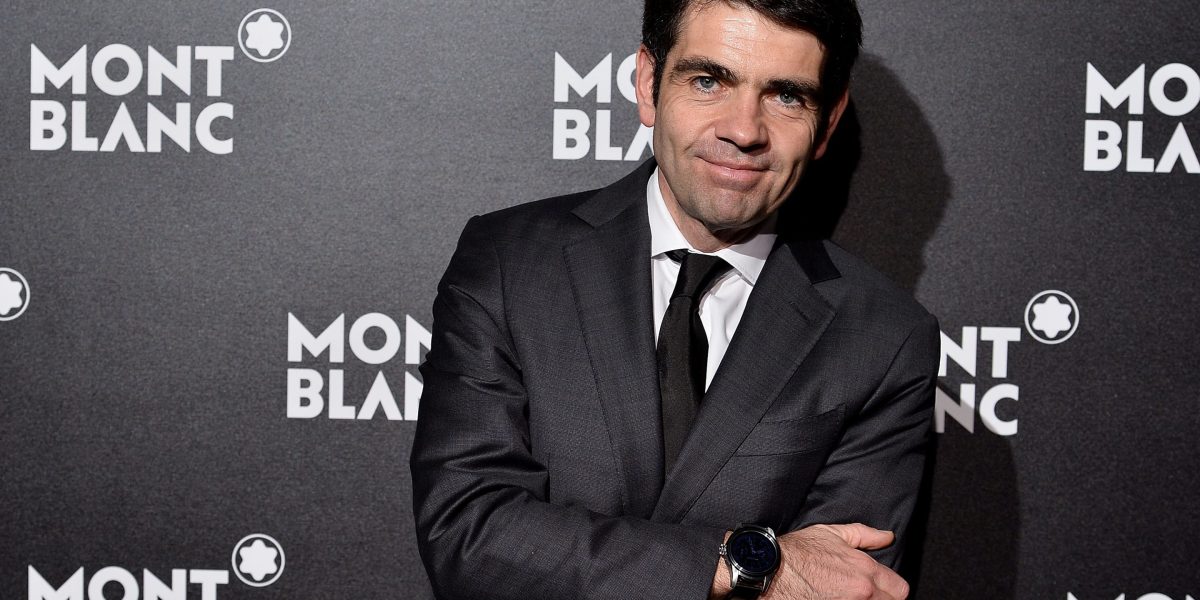- Investors have been forced to reckon with the apparent fact Trump is serious about implementing substantial tariffs on several, if not all, U.S. trading partners. While there’s plenty of turmoil to come, Morgan Stanley Investment Management executive Jim Caron said traders are well-equipped to map out how different scenarios could impact the global economy and corporate earnings.
President Donald Trump’s 25% tariff on imported vehicles and car parts pushed auto stocks down Thursday, but the S&P 500 and other major indexes held relatively steady. It could be another sign investors are increasingly confident markets have made it past “peak tariff uncertainty,” as Jim Caron, an executive at Morgan Stanley Investment Management, put it, even if there’s likely plenty of turmoil around U.S. trade policy to come.
Stocks rose to start the week after reports from The Wall Street Journal and Bloomberg said the administration was considering narrowing the scope of the so-called “reciprocal tariffs” being unveiled Apr. 2, which the president has referred to as “Liberation Day.” Regardless of what’s unveiled, Caron told Fortune earlier this week, investors are better primed to react to these developments than when stocks plunged earlier this month.
“There’s a difference between uncertainty and volatility,” said Caron, the chief investment officer of the firm’s portfolio solutions group.
Markets famously despise the former, he said, because it’s impossible to quantify, for example, whether the president is just talking tough on taxing imports as a negotiating tactic. Now, investors have been forced to reckon with the apparent fact Trump is serious about implementing substantial tariffs on several, if not all, U.S. trading partners.
Of course, it’s impossible to determine the extent of these tariffs in advance, never mind what sectors will be hit hardest or whether retaliation from other countries will result in a global trade war. But traders can map out how different scenarios impact the global economy and corporate earnings, Caron said, which he called “managing volatility.”
“That, in the financial markets,” he said, “we’re really equipped to handle and understand.”
Investors have already moderated expectations for the economy this year. Goldman Sachs recently lowered its projection for U.S. GDP growth from 2.4% to 1.7%, a number Caron said is becoming Wall Street’s consensus.
When it comes to the impact of tariffs on inflation, Caron cited Federal Reserve chair Jerome Powell’s press conference last week. The head of America’s central bank said a one-time shock to prices would result in “transitory,” or temporary, inflation, while indicating a chain reaction of escalating price hikes remains a threat.
The on-again, off-again nature of Trump’s tariff threats drove the S&P 500 into correction territory by Mar. 13 as the index dropped 10% from its all-time high in mid-February. The tech-heavy Nasdaq Composite plunged 14% in that span, but both indexes have rallied more than 3% since.
Will the “American exceptionalism” trade last?
Caron said his team treated the dip as a buying opportunity in both America and Europe. In recent years, investors have been much better off parking their money in U.S. stocks than anywhere else. A chaotic barrage of policy announcements from the Trump administration, however, has markets souring on the “American exceptionalism” trade.
While the S&P 500 is down nearly 3% in 2025, stocks across the pond have surged as the continent prepares to dramatically up spending on defense and infrastructure amid fears of U.S. abandonment. The pan-European STOXX 600 is up 7% year-to-date, while in Germany, where the government has reached an agreement to potentially unlock $1 trillion in new outlays, the country’s DAX Index has jumped over 12% in that span.
Meanwhile, the S&P China 50 Index is up over 16%, despite Trump raising tariffs on China by 20% since the start of his term, inflaming growing tensions between the world’s superpowers. Optimism about China’s tech sector and AI capabilities has significantly increased since the surprise success of DeepSeek’s R1 model. Joe Quinlan, who oversees market strategy for the wealth management divisions of Bank of America and Merrill Lynch, said Wall Street is optimistic about the government’s efforts to boost flagging consumer demand.
“China really got out the fiscal bazooka,” he said. “They really got aggressive with monetary policy.”
Bank of America’s monthly fund manager survey found 69% of respondents said “American exceptionalism” had peaked, reporting the biggest drop in U.S. equity allocation since BofA began conducting the survey in 1994.
Investors are being cautious when looking abroad, though. Stephanie Link, who manages a $6 billion portfolio as chief investment strategist at Hightower Advisors, told Fortune earlier this month she’s wary of chasing gains in Europe, where she said more stringent regulation weighs on profit margins.
She feels even less comfortable about China and its authoritarian regime, noting the mysterious disappearance of Alibaba founder Jack Ma. Before shaking hands with Chinese President Xi Jinping at an event last month, Ma had been seen only sparingly in public after criticizing Chinese finance regulators in 2020.
Link is more bullish on India, where she noted companies like Apple are moving their supply chains to reduce exposure to China—and a growing middle class, she said, will support growth.
It makes sense for investors to look for some diversification, she said, with the S&P 500 trading at roughly 22 times forward earnings. The 20-year average for the index has been about 16, according to FactSet.
“I do think we have American exceptionalism,” Link said earlier this month, “but I think it’s coming at a very high price.”
At least some investors feel the tariff picture is clearing ever so slightly.
This story was originally featured on Fortune.com
Source link


 Entertainment8 years ago
Entertainment8 years ago
 Politics8 years ago
Politics8 years ago
 Entertainment8 years ago
Entertainment8 years ago
 Entertainment8 years ago
Entertainment8 years ago
 Tech8 years ago
Tech8 years ago
 Tech8 years ago
Tech8 years ago
 Tech8 years ago
Tech8 years ago
 Politics8 years ago
Politics8 years ago






